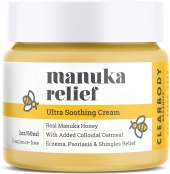





 2
2




Mandrake...takes on and holds the influence
of the devil more than other herbs because of its similarity
to a human. Whence, also, a person’s desires, whether good
or evil, are stirred up through it...
-Hildegard of Bingen, Physica
 3
3




Thanks, Y'all!
 1
1






 1
1




Stacie Kim wrote:
Good Water (not tap)--15.5 oz
Building regenerative Christian villages @ https://jesusvillage.org/
100+ Homesteading Software Tools @ https://homestead.tools/




Thanks, Y'all!

 3
3








Skandi Rogers wrote:Less than one animal. the last beef cow we had slaughtered came back with 100kg of extra fat, a pig can easily come home with 20-30kg of extra fat. you get more soap by weight than the fat it uses so for your 5.5kg of soap you would need about 4.5kg of fat (exactly how much depends on which fat and which superfat % you pick)
Mandrake...takes on and holds the influence
of the devil more than other herbs because of its similarity
to a human. Whence, also, a person’s desires, whether good
or evil, are stirred up through it...
-Hildegard of Bingen, Physica
 1
1




Ryan M Miller wrote:Given the amount of soap I'm currently using, would a greywater system for bath and washing water be able to handle the soap if I only had 1/5 an acre of land to work with? I'm still new to the concept of greywater.
Thanks, Y'all!




Building regenerative Christian villages @ https://jesusvillage.org/
100+ Homesteading Software Tools @ https://homestead.tools/
 1
1




Mandrake...takes on and holds the influence
of the devil more than other herbs because of its similarity
to a human. Whence, also, a person’s desires, whether good
or evil, are stirred up through it...
-Hildegard of Bingen, Physica
 1
1




The holy trinity of wholesomeness: Fred Rogers - be kind to others; Steve Irwin - be kind to animals; Bob Ross - be kind to yourself
 1
1




"We will never be truly healthy, satisfied, or fulfilled if we live apart and alienated from the environment from which we evolved." -Stephen Kellert

|
His brain is the size of a cherry pit! About the size of this ad:
Learn Permaculture through a little hard work
https://wheaton-labs.com/bootcamp
|



